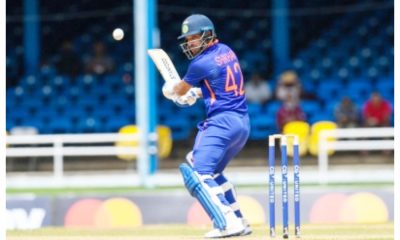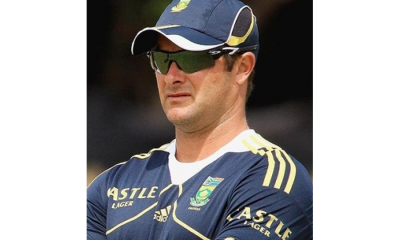International
ICC Women’s World Cup: South Africa unconvincing in win against Bangladesh
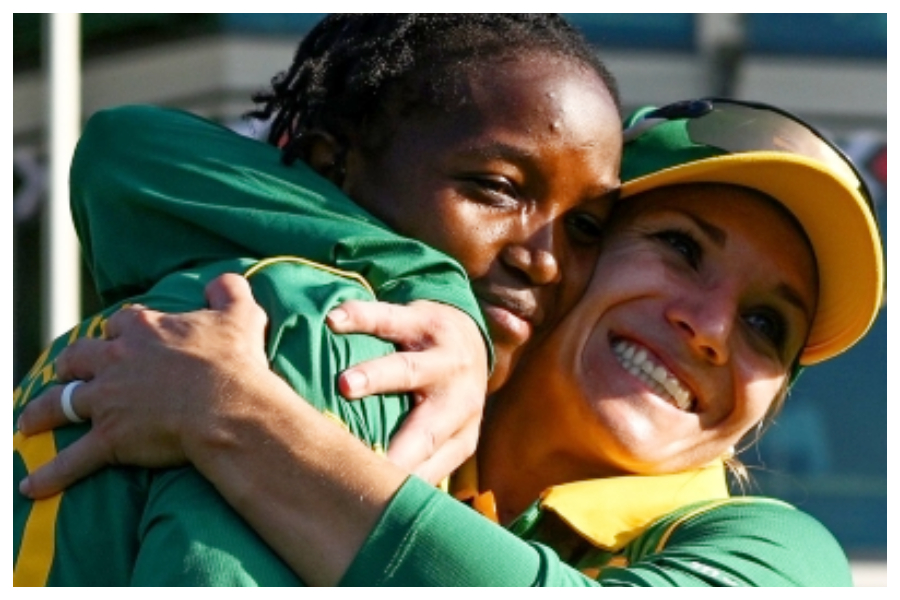
Veteran South African medium-pacer Ayabonga Khaka took four wickets for just 32 runs as they defeated Bangladesh Women by 32 runs in an ICC Women’s World Cup match at the University Oval here on Saturday.
Electing to bowl after winning the toss, Bangladesh did well to restrict the Proteas to 207 in 49.5 overs, but in a game dominated by bowlers, Sune Luus’ side earned full points by bundling out the opponents for 175 with three balls to spare.
Marizanne Kapp (42) and the hard-hitting Chloe Tryon (39) lifted last edition’s semifinalists to a fighting but below-par 207 before Ayabonga Khaka, who was declared ‘Player of the Match’ came up with match-winning figures of 10-3-32-4 to earn her team a hard-fought win.
Bangladesh made a steady start, reaching 69 for one before Khaka let rip and reduced them to 85/4. A late flurry from Nigar Sultana and Ritu Moni came too late as they managed only 175, and fell way short.
Earlier, Luus’s side felt the absence of Lizelle Lee in a wobbly start to their seventh World Cup campaign, with Bangladesh excelling from the start in a fearless display. Teenager Fariha Trisna should have dismissed Tazmin Brits with her second World Cup ball, only to watch Nahida Akter spill a sitter at mid-on.
Jahanara Alam’s experience and Trisna’s youth made for a pleasing new-ball partnership and it took Brits 19 balls to get off the mark when she lifted the latter for four over mid-on.
Brits, a former world junior javelin champion, never got off the ground and flicked to Rumana at midwicket, departing for eight at 30 for one. Wolvaardt and Lara Goodall steadied the innings with the powerful opener profiting from the introduction of spin, slicing Salma Khatun’s second ball for four behind point.
Despite the odd loose delivery from Khatun, including a half-tracker that Wolvaardt dispatched, scoring wasn’t fluent as South Africa reached 67 for one from 20 overs. Medium-pacer Moni’s nagging accuracy was rewarded with the big wicket of Wolvaardt as she drew the ball back through her defences, dismissed for 41 from 52 balls.
One brought two for Bangladesh as Khatun induced Goodall into a mistimed reverse sweep that Rumana Ahmed pouched down to her left, making it 69 for three. Mignon du Preez initially took a liking to Rumana’s flighted leg spin but gave a simple return catch back to the bowler as her side sunk still further.
The experienced pair of Kapp and Luus took control with three boundaries off Nahida Akter but were separated when Rumana deflected a Kapp drive back onto the stumps with Luus short of her ground.
It was left to Tryon to inject some late life into a faltering innings and a huge six off Rumana in the 38th over wasn’t a bad way to start, according to ICC.
The Proteas went in search of early wickets but were met with resistance from Bangladesh. Wolvaardt got a hand to a tough chance to get Sharmin Akhter in the fifth over but could only tip it over the bar and nearly took one that fell inches short of her a few balls later.
That was as good as it got for South Africa in their quest to halt the debutants’ momentum and Kapp looked frustrated when Sharmin edged for four through the slips.
Sharmin and Shamima Sultana took two fours off skipper Luus the over before the drinks break, taken at 59-0, with Sultana then dropped at slip and escaping another possible run out.
Khaka made the breakthrough by beating Sultana’s drive and bowling her for 27 at 69 for one. Two balls later, Murshida Khatun guided another edge to Trisha Chetty.
Fargana Hoque was then run out for eight and the brilliant Khaka brought up her 100th WODI wicket Rumana nicked to Chetty.
Nigar Sultana and Moni then built a half-century stand, the latter’s stroke-making offering more than a glimmer of late hope. That hope faded out when Moni was bowled by Ismail for an excellent 27 and two further wickets saw Bangladesh finish on 175 all out.
Brief scores: South Africa 207 in 49.5 overs (Marizanne Kapp 42, Laura Wolvaardt 41; Fariha Trisna 3/35, Jahanara Alam 2/28) beat Bangladesh 175 in 49.3 overs (Sharmin Akhter 34, Nigar Sultana 29; Ayabonga Khaka 4/32, Masabata Klaas 2/36) by 32 runs.
International
UNSC asks all countries to cooperate in bringing Pahalgam terrorists, backers to justice
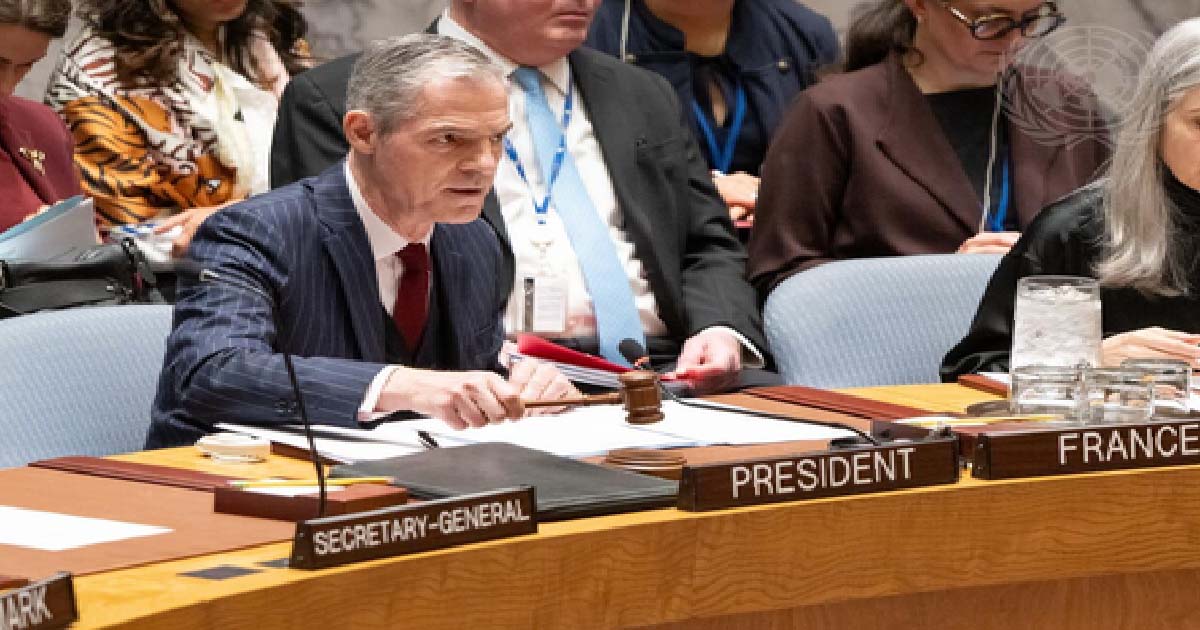
United Nations, April 26: The Security Council has “condemned in the strongest terms” the Pahalgam terrorist attack and urged all countries to cooperate in bringing all those involved in the massacre, to justice.
The members of the Security Council “stressed that those responsible for these killings should be held accountable, and urged all States, in accordance with their obligations under international law and relevant Security Council resolutions, to cooperate actively with all relevant authorities in this regard”, Council President Jerome Bonnafont said in a Press statement on Friday.
A front organisation of the Pakistan-based terrorist group Laskhar-e-Tayiba has owned responsibility for the attack.
The statement issued by France’s Permanent Representative Bonnafont who is the Council president for this month, took a broad view of those involved in the massacre by including the financiers and sponsors.
“The members of the Security Council underlined the need to hold perpetrators, organisers, financiers and sponsors of this reprehensible act of terrorism accountable and bring them to justice”, the statement said.
Pakistan, which is on the Council as an elected member, went along with the other members in endorsing the statement, committing itself – at least on paper – to bringing those involved to justice.
A Press statement expresses the consensus of the Council and carries moral authority, while not being legally binding like a resolution.
The statement also shot down the attempts by some in Pakistan to give terrorist attacks a veneer of justification.
“The members of the Security Council reiterated that any acts of terrorism are criminal and unjustifiable, regardless of their motivation, wherever, whenever and by whomsoever committed”, it said.
The Council members “reaffirmed the need for all States to combat by all means, in accordance with the Charter of the United Nations and other obligations under international law, including international human rights law, international refugee law and international humanitarian law, threats to international peace and security caused by terrorist acts”, the statement added.
Earlier, the spokesperson for Secretary-General Antonio Guterres hinted that a diplomatic effort by him may be afoot.
Asked by a reporter, if Guterres would speak to leaders of India and Pakistan, Spokesperson Stephane Dujarric said that he hoped to have something to share on that later.
Reiterating the condemnation of the terrorist attacks, Dujarric said, “We again urge both the Government of India and the Government of Pakistan to exercise maximum restraint to ensure the situation does not deteriorate further.”
When a reporter asserted that the possibility that “two nuclear countries” might “go to war” was getting insufficient attention, Dujarric said, “I don’t agree with your comment. We are paying very close attention to the situation between India and Pakistan.”
International
Wagah-Attari border closure leaves several families in limbo
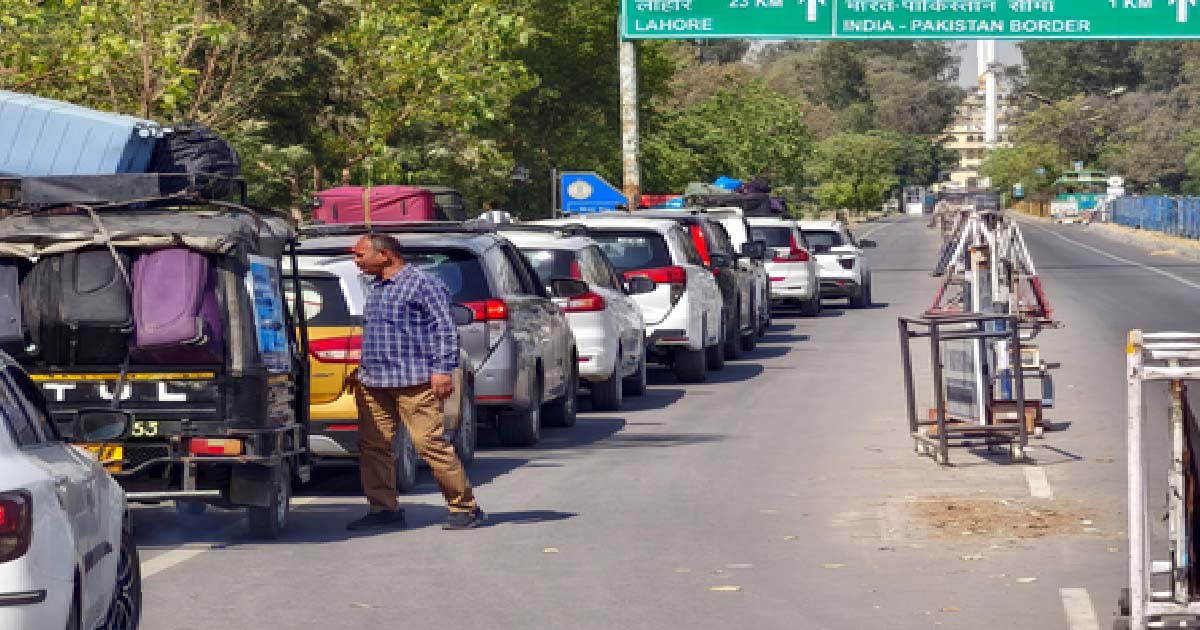
Islamabad, April 25: Pakistan and India’s decision to shut down the Wagah-Attari border crossing after the deadly Pahalgam terror attack has forced several citizens from both countries to cut short their visit and rush back home.
On Thursday, after both countries announced closure of border crossing and gave a deadline for citizens to leave for their respective countries, at least 28 Pakistanis nationals returned from India while 105 Indian citizens in Pakistan crossed over into India.
A Hindu family from Balochistan’s Sibi was reportedly denied entry into India after the closure of border crossing.
“We were on our way to Indore in Madhya Pradesh to attend a wedding. Seven members of our family were excited to join our relatives in India and take part in the celebrations. But upon reaching Wagah, we learned that the border had been sealed. We will spend the night at Dera Sahib in Lahore and head back home tomorrow,” said Akshay Kumar.
Meanwhile, a Sikh family from India, in Pakistan to attend a wedding, decided to leave for India immediately.
“We had come to Pakistan for a wedding. While the ceremony took place, several important rituals remained. Once we heard the border was closed, we decided to return immediately,” said Raminder Singh, an Indian national.
A Hindu family from Ghotki in Pakistan’s Sindh province, now residing in New Delhi, was visiting Pakistan for the last two months to meet their relatives. However, they are now unsure about getting permission to return to India.
“There are five of us, including my young son and daughter, uncle and aunt. We all hold Pakistani passports and were granted No Obligation to Return to India (NORI) certificate by India. But uncertainty looms now, said a family member named Indira.
“Families with cross-border ties often bear the brunt of rising tensions between the two neighbours. With tensions between Pakistan and India once again on the rise, human connections across borders are becoming the first casualty,” said Asif Memood, a Lahore-based journalist.
“The closure of the Wagah-Attari border has left many families in limbo, uncertain when they will next reunite with their loved ones,” he added.
International
Murder of Hindu leader: India slams Bangladesh, says killing follows pattern of systematic persecution of Hindu minorities
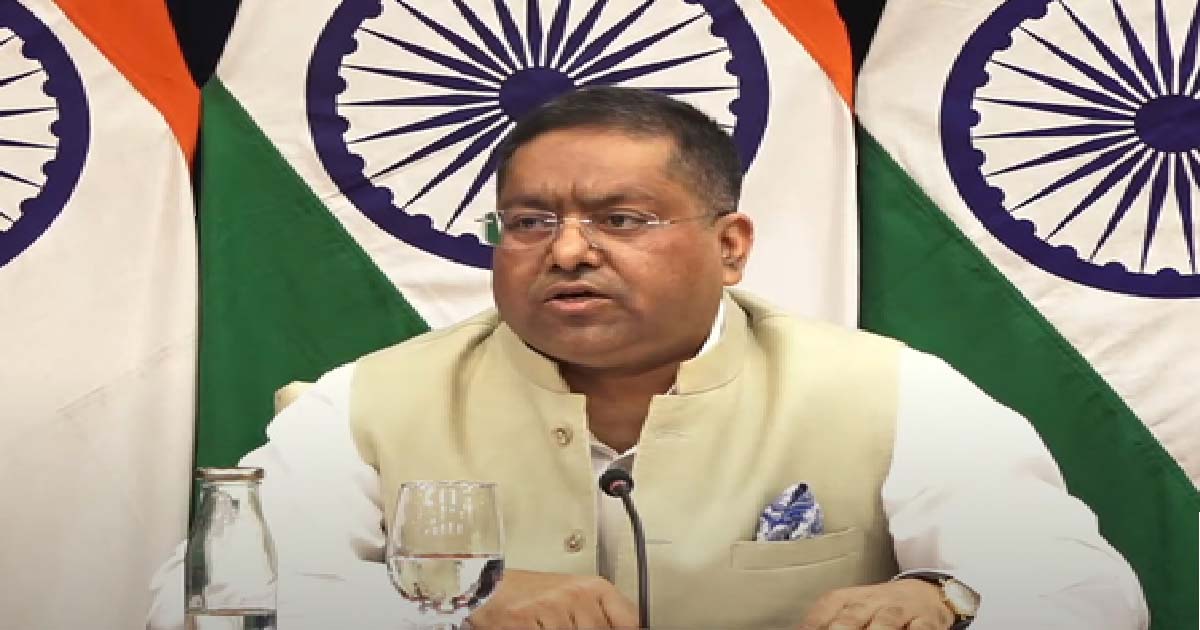
New Delhi, April 19: India on Saturday issued a sharp condemnation of the abduction and brutal killing of Bhabesh Chandra Roy, a prominent Hindu community leader in northern Bangladesh, calling it part of a “pattern of systematic persecution” of minorities under the country’s interim government.
Ministry of External Affairs (MEA) spokesperson Randhir Jaiswal voiced India’s grave concern, stating that the incident reflects an alarming trend of targetted violence against Hindus and other minority groups in Bangladesh.
“We have noted with distress the abduction and brutal killing of Shri Bhabesh Chandra Roy, a Hindu minority leader in Bangladesh. This killing follows a pattern of systematic persecution of Hindu minorities under the interim government, even as the perpetrators of previous such events roam with impunity,” Jaiswal said in a post on social media platform X.
He added, “We condemn this incident and once again remind the interim government to live up to its responsibility of protecting all minorities, including Hindus, without inventing excuses or making distinctions.”
India has previously expressed similar concerns over rising attacks on minorities in Bangladesh, but this latest incident has drawn particular attention due to Roy’s prominence in the Hindu community.
Roy, who served as the Vice-President of the Biral unit of the Bangladesh Puja Udjapan Parishad, was abducted from his residence in Dinajpur district on Thursday evening. According to police and family accounts, he received a phone call around 4:30 p.m., after which four unidentified men arrived on motorcycles and forcibly took him to Narabari village. He was reportedly assaulted and later found unconscious. He was rushed to a hospital in Dinajpur, where he was declared dead on arrival. His wife, Shantana Roy believes the attackers used the call to confirm his location before carrying out the abduction.
Opposition leaders in India also slammed the shocking incident in the neighbouring country.
Congress President Mallikarjun Kharge highlighted that religious minorities, especially Hindus, are being persecuted in Bangladesh.
“Attacks on other religious minorities are also continuing. Recently, the Chief Advisor of Bangladesh made a very condemnable and disappointing comment about the northeastern states of India. The persecution of religious minorities in Bangladesh, human rights violations, and the attempt to erase the memories of the 1971 Liberation War are efforts to weaken the relationship between India and Bangladesh. From 1971 till today, India has always wished for peace and prosperity for all the people of Bangladesh. This is in the best interest of the subcontinent,” he said.
-

 Crime3 years ago
Crime3 years agoClass 10 student jumps to death in Jaipur
-

 Maharashtra1 year ago
Maharashtra1 year agoMumbai Local Train Update: Central Railway’s New Timetable Comes Into Effect; Check Full List Of Revised Timings & Stations
-

 Maharashtra1 year ago
Maharashtra1 year agoMumbai To Go Toll-Free Tonight! Maharashtra Govt Announces Complete Toll Waiver For Light Motor Vehicles At All 5 Entry Points Of City
-

 Maharashtra1 year ago
Maharashtra1 year agoFalse photo of Imtiaz Jaleel’s rally, exposing the fooling conspiracy
-

 National News1 year ago
National News1 year agoMinistry of Railways rolls out Special Drive 4.0 with focus on digitisation, cleanliness, inclusiveness and grievance redressal
-

 Maharashtra1 year ago
Maharashtra1 year agoMaharashtra Elections 2024: Mumbai Metro & BEST Services Extended Till Midnight On Voting Day
-

 National News1 year ago
National News1 year agoJ&K: 4 Jawans Killed, 28 Injured After Bus Carrying BSF Personnel For Poll Duty Falls Into Gorge In Budgam; Terrifying Visuals Surface
-

 Crime1 year ago
Crime1 year agoBaba Siddique Murder: Mumbai Police Unable To Get Lawrence Bishnoi Custody Due To Home Ministry Order, Says Report



